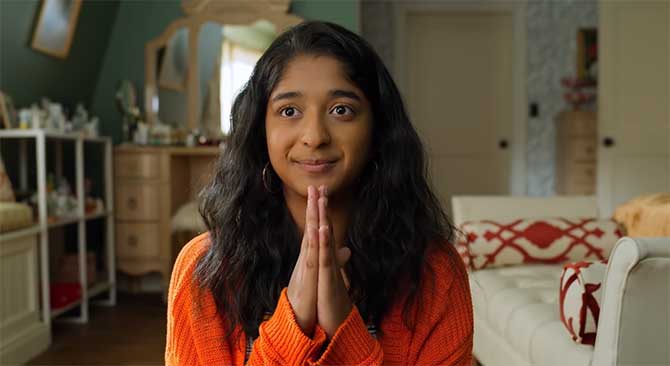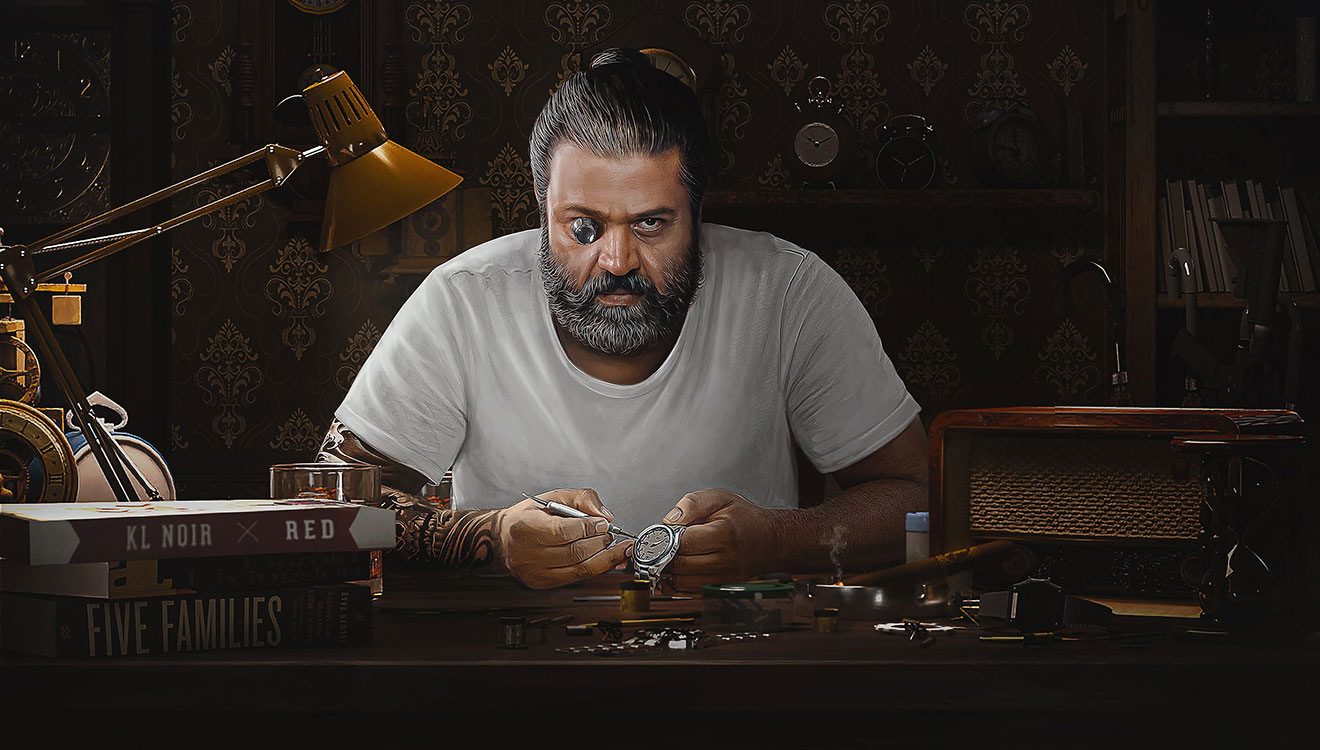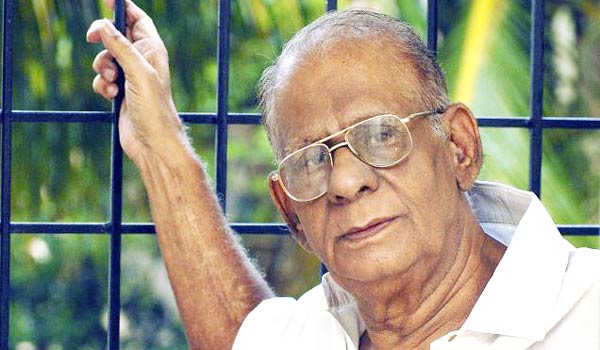Let me begin with this, I had to watch Never Have I Ever. My approach to content featuring teenagers is the following, “I have two daughters, this is study material. I need to prepare myself for my karma catching up with me.” (Around the time I was streaming the show, the Bois Locker Room story broke, and I went into a really dark spiral. Suddenly, parenting was not just about considering the child an equal or having conversations about feelings, but, something very real and difficult.)
Since we have been semi-attached to our Fire TV Stick during the lockdown, I had already watched the trailer for Never Have I Ever. The premise intrigued me, an American high school drama, featuring an Indian girl in the lead. It is written by Mindy Kaling, and it must have some authenticity to it. And, of course, the fact that I will take any opportunity to ogle at Sendhil Ramamurthy.
I began watching it with an open mind. If I could love Kim’s Convenience or even To All The Boys…, then Never Have I Ever should be easy to consume, right? It’s not. Is there a bigger confirmation of the fact that the diaspora is stuck in a time warp, especially in matters concerning the motherland? Also, the people in this series are exhausting.
The show is not about me. I get it. It is about the Indian-American diaspora. It speaks to their lives and experiences. It speaks to the ABCD trope, it speaks to the “sanskaari nari” trope. It speaks to the “we will protect our bindi wearing culture from appropriation” trope. It speaks to the “Indian parents are strict and they have arranged marriages” trope. This milieu feels like we are in a khap panchayat where the eldest male in the family is consulted on the big life-changing decisions.
So why review it? Why speak about it? Well, the diaspora needs to wake up, and book tickets to India, and more importantly, study which class of people from India migrate to the United States. Not all migrants come from poverty, strife, and suffering. Some migrants, especially those from India, come from extreme privilege, and, the “when you go to India, you’ll have servants” line by Kamala speaks to this assumption perfectly.
There is a lot that didn’t make sense in this show. To begin with, its timeline. Devi is 16. If Nalini and Mohan moved to the US from India when she was a toddler, then, it was probably the 2000s. Early 2000s parents were internet parents. Nalini and Mohan are English-speaking parents. They migrated abroad from a country that was already globalised and fast catching up to the rest of the world, putting the snake charmer image far behind it. So, the entire culture that this family seems to be following is a time warp. It’s saying a lot that the Indian diaspora thinks urban India is somehow still, forgive the lack of a better word, “backward”. It’s like no one watches Bollywood movies. At all.
I don’t know what is going on with the Indians in the US. So, if Ganesh Pooja (not Vinayaka Chathurti or Ganesh Chathurti) is the “warm family moments” equivalent to Thanksgiving and Christmas, then, we really need to talk to them about our festivals. Even Coca-Cola does a better job of this. And, seriously, I am finding it difficult to give accuracy credentials to a show that didn’t know the difference between Durga Puja and Ganesh Chaturthi while giving us a motherland montage.
With that, I want to segue into clothing, especially ethnic clothing. In 2020, Instagram is doing an exceptional job of talking about sarees, ethnic fashion, and how to drape them with style. The ladies in Never Have I Ever though… And what even was that “you are of age now, half saree is better” line about? Vayasukku vandha ponnu must dress a certain way? Really? Does no one in the costume department have an internet connection? And most importantly, why is there so much polyester? There is literally no excuse for looking that shabby.
Then, there was the Indian cousin. I honestly couldn’t understand a word she was saying. I don’t know if she was talking to herself, or talking about herself. Not to mention the fact that she wasn’t sure if she was doing an impression or speaking dialogue. If she speaks English there is no way she is this clueless. But then again, this is a show that made an entire aside about the position that people must stand in when welcoming the groom, so, the “I don’t know anything about American culture” cousin is hardly surprising.
This is not the first show or movie to feature Indian characters. In their recent appearances on TV shows, Indian Americans have not been stereotyped to death. Emet from I Feel Bad, and Rakesh Sharma from God Friended Me come to mind. They are living life, dealing with life, and doing everyday things – go out with friends, spend time with family, deal with expectations and responsibilities, like everyday people. Yes, their culture is different. However, the characters aren’t about their place in the diaspora or an “Indian-American Culture 101” type of situation. Never Have I Ever is not really sure about what it is peddling about the diasporic identity. We don’t even know which part of the motherland this family is from. Tamil Nadu, I think? Periyappa is not a form of address anywhere else.
Speaking of periyappa, where are this family’s relatives? The family’s complete lack of connection with their relatives is so bizarre. Does Devi not have grandparents? Why didn’t Nalini’s parents or in-laws come to California to help her during such a huge crisis? And Kamala’s parents don’t seem to exist at all. Their daughter is in the US, and they don’t seem worried enough to video call and check on her every given occasion. Not even on Ganesh Puja? Weird. The irony is that the show then makes a comment on Ben Gross’s parents doing zero parenting.
The show is trending at #1 in India on Netflix. It seems to have, for some reason, struck a chord with people. I genuinely don’t know how. Or maybe I am too old for this show? I wish this were just a teen high school drama starring an Indian girl in the lead. It’s not.
This show, and for me, the showrunners, all seem to think that the average Indian American is an upper caste, vegetarian merit bro who came to the US to make more money than they were averaging in the motherland. The show is also so casual in its Islamophobia. A Hindu woman marrying a Muslim man, then coming to the Hindu festivals only to be shunned by everyone, and then, to tell a young girl “I wish I had listened to my parents” is the lowest the show stooped.
Recommended
The Indians in this show are actively terrible people. They aren’t telling you that India is (supposed to be) a secular country. They are telling you that India is a Hindu country. And to be honest, Hollywood and its celebrities have been telling us the same thing for decades now. Even Outsourced, the movie, and the show, same thing. Find me more Indian diaspora shows that don’t feature vegetarian Hindus and we’ll talk. (Hello Hasan Minhaj and Aziz Ansari). This show seems to think Indian-American = Hindu vegetarian that’s not okay with me.
Never Have I Ever works as a teenage drama. It shouldn’t be used as a marker for the Indian American experience. This show has been made by Mindy Kaling to explain herself and her background to the people she works with and for. And it is a terrible explanation. If there is a Season 2, I doubt that it will do better. It may get worse. I live in dread at the prospect.



